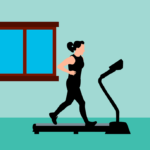A lot of people think that a slow metabolism is to blame when they can’t seem to lose weight or they have low energy levels. Even though your metabolism rate may have no effect on your progress, boosting your metabolism with natural remedies cannot hurt.
“Often, people think their metabolism is broken or not working,” says Erik Bustillo, RD, a strength and health coach and co-vice president and fellow of the International Society of Sports Nutrition (ISSN), and resident dietitian at Train 8Nine in Miami, Florida. “But the truth of the matter is that if we are alive, our metabolism is working.”
What Is Metabolism
Metabolism is the process of turning food or calories into energy. There is a difference between the rate at which our bodies process energy in general and our basal metabolic rate.
Erik Bustillo, RD
Our metabolism is the set of processes that breaks down food into energy in our bodies.
— Erik Bustillo, RD
Bustillo states that metabolism is a combination of various processes occurring throughout our body that work together to create energy.
Your BMR is the number of calories your body needs to maintain itself. The body’s largest energy needs come from BMR, which can depend on age, sex, height, and weight.
Our basal metabolic rate is the amount of calories we burn when we are at rest, or as I call it, ‘keeping the lights on.’
How Energy Is Used
- Breathing
- Circulating blood
- Controlling body temperature
- Contracting muscles
- Digesting food and nutrients
- Eliminating waste through urine and feces
- Functioning of the brain and nerves
Why People Want to Boost Metabolism
Other people, in addition to those interested in weight management, may be interested in boosting their metabolism to maintain abdominal and overall body leanness and to reduce their risk of type 2 diabetes.
The idea here is that if your metabolism is running at a higher rate, you’ll be burning more calories, and if you’re trying to lose fat, this will assist you in that goal.
A 2018 collection of 15 studies found that resistance exercise can help improve type 2 diabetes, a metabolic disease. The researchers discovered that resistance exercise can help improve blood sugar control by affecting how the body metabolizes glucose and fat.
Natural Ways to Boost Metabolism
If you take drastic measures to lose weight, you won’t improve your metabolism in the long term or develop a healthy relationship with food. There are several ways to help speed up your metabolism, such as eating a balanced diet, exercising regularly, moving more often throughout the day, and even consuming moderate amounts of caffeine. Here are six natural ways to boost your metabolism.
Eat Enough Calories for Your BMR
Most people would be surprised to find out that they are not consuming enough food to support their BMR. If you don’t eat enough food during the day, you might overeat later or have a slow metabolism. According to research, being on a low-calorie or restricted diet for an extended period of time will have a negative effect on metabolism.
If you want to lose weight, you may need to eat fewer calories than you burn. This can be done by working with a dietitian or healthcare provider to set weight management goals. You should not feel deprived if you reduce your portion size. Your healthcare team can help you determine what foods to eat to ensure you feel full and satisfied.
Bustillo suggests that people consult with a registered dietitian to make sure they are getting enough calories to support their metabolism and overall health.
There are a few different methods you can use to calculate your BMR. You can have a medical professional calculate your BMI, get it tested in a lab, or you can use an online calculator. A lab test is the most accurate way to estimate something.
However, lab tests can be costly. Other people use one of the other two methods to find out how many calories they burn each day.
Equation to Calculate BMR
This equation is typically used to estimate an individual’s basal metabolic rate.
- Men : (10 × weight in kg) + (6.25 × height in cm) – (5 × age in years) + 5
- Women : (10 × weight in kg) + (6.25 × height in cm) – (5 × age in years) – 161
To find your weight in kilograms, divide your body weight by 2.2. To determine your height in centimeters, multiply your height in inches by 2.4.
Since the Mifflin-St. Jeor equation only provides an estimate of BMR while at rest, you need to multiply it by your activity factor to get an idea of your daily calorie needs. Come to our website to find out your BMR by inputting your height, weight, and age, as well as your daily activity level. This calculator provides an estimate of the number of calories you burn each day.
Exercise Regularly
Your metabolism will change even if you only exercise once. A single session of therapy may not have lasting changes, but it will still have some impact. To achieve lasting results, you should try to do some physical activity every day of the week.
The American Heart Association recommends that adults get at least 150 minutes of moderate-intensity aerobic exercise or 75 minutes of vigorous aerobic activity per week. The recommended number of days per week to add moderate-to-high intensity muscle-strengthening activity is at least 2.
According to Bustillo, physical activity burns calories, and regular movements require energy, especially when performed at high intensities.
There is no one exercise that is better than others when trying to plan your exercise program. Workouts that are less intense burn fewer calories, but can still provide a metabolic boost. Higher intensity workouts burn more calories and create a greater metabolic boost.
The key is finding a workout you enjoy doing. If you are not enjoying your exercise routine, you are less likely to stick with it.
Add Caffeine
Both caffeine and coffee can help speed up your body’s fat-burning process. One study found that caffeine and coffee can increase metabolic rate and fat burning in both people of normal weight and individuals with obesity. In every test, the group that drank the caffeinated coffee had a higher metabolism and rate of fat burning.
If you don’t like coffee, green tea has similar effects on your metabolism and fat burning. Caffeine and coffee are not recommended for anyone under the age of 18.
Caffeine consumption has been shown to be effective in improving exercise performance and delaying fatigue, according to the International Society of Sports Nutrition. This could create an environment conducive to increasing muscle mass, and therefore, increasing metabolism.
“Regarding caffeine intake, this depends on the person and if they can use caffeine,” notes Bustillo. “But, I feel that using caffeine for fat loss is like looking at a barbell and not lifting it but expecting muscle gain. It doesn’t do anything without making actual lifestyle changes [like] making dietary changes OR changes to one’s daily energy output.”
Don’t Overdo Calorie Cutting
A very low-calorie diet is not an effective way to lose weight. “So if you suddenly drop 1,000 calories a day or eat only 700 calories a day for a week, your body will automatically think something’s wrong and hold on to fat in order to make up for the calorie deficit.” As Liz Applegate, Ph.D., professor of nutrition at the University of California at Davis and author of Bounce Your Body Beautiful points out, “Your body is programmed to defend your usual weight.” So, if you suddenly reduce your calorie intake by 1,000 calories a day or eat only 700 calories a day for a week, your body will automatically think something’s wrong and hold on to fat in order to make up for the calorie deficit. If you significantly decrease the number of calories you consume, your body will burn fewer calories at rest because it will think you are starving.
So how many calories should you consume? Applegate states that individuals can safely lose between half a pound to two pounds a week, by multiplying their current weight by 11. Your daily calorie intake should not be below 1,200 unless you are less than five feet tall. If women consume less than the recommended amount, their resting metabolic rate can drop by up to 45%. This is according to Dale Huff, a nutritionist from St. Louis.
Pile On the Protein
An extra 150 to 200 calories can be burnt each day by consuming lots of protein, as Jeff Hampl, Ph.D., R.D. from the American Dietetic Association explains. This is because protein is made up of amino acids, which take more energy for the body to break down than either fat or carbohydrates.
You don’t have to live on the high-protein Atkins diet to be healthy. Between 10-35% of your daily calorie intake should be made up of protein. If you are dieting and eating 1800 calories a day, between 360 and 630 of those calories should be from lean sources of protein such as fish, chicken, low-fat cheese, yogurt, and legumes. You should try to have a source of protein, like nuts, tuna, or cheese, at every meal and snack, according to Hampl.
Nibble All Day
You would think that eating all the time would make you gain weight, but surprisingly, the opposite is true. Mini meals help to keep your metabolism going throughout the day. Peeke says that not eating for long periods of time will cause you to overeat when you finally do eat. You should try to eat every four hours and make sure that each meal has protein in it to help boost your metabolism. If you eat a high-fiber breakfast of cereal and fruit first thing, for example, have a midmorning snack , such as yogurt and fruit; lunch (try four ounces of chicken or fish on top of a leafy green salad); another snack, like a banana and a piece of low-fat cheese, in the late afternoon; and a light dinner (think four to six ounces of turkey, salmon, or another lean source of protein with steamed veggies).
Go for Good Carbs
Refined carbs can lead to weight gain because they cause your body to produce insulin, which promotes the storage of fat. Louis Aronne, M.D., an obesity specialist at New York Presbyterian Weill Cornell Medical Center, recommends eating high-fiber carbs instead. “Carbohydrates are an important part of your overall diet, but you should focus on eating vegetables, fruits, and whole grains more often. These foods have less of an impact on your insulin levels,” he explains.
This content is imported from Giphy. You may be able to find the same content in another format, or you may be able to find more information, at their website.
Skip Alcohol
New research suggests that you may want to rethink that plan. New research suggests that you may want to rethink having a cocktail or two before dinner. Think again. Studies show that people who have a drink before a meal consume around 200 additional calories. It is not a good idea to drink alcohol with dinner either because research has found that the body will metabolize the alcohol first. This means that the calories from the rest of the meal are more likely to be stored as fat. If you are craving a cocktail, it is better to stick to wine which only has 80 calories per glass. You can also minimize the calories by drinking a white-wine spritzer which is two ounces of wine mixed with two ounces of seltzer.
Pump Iron
The experts say that if you want to increase your resting metabolic rate, you should do weight training. As you age, your metabolism slows down, but you can increase it by doing weight training. A pound of muscle burns more calories than a pound of fat. A woman who is both 130 pounds and muscular burns more calories than a sedentary woman of the same height who only weighs 120 pounds. Regular strength training can increase your resting metabolic rate by 6.8 to 7.8 percent. If you weigh 120 pounds, you could burn around 100 more calories a day just by watching TV.
You may not think you have time to go to the gym, but there are circuit training workouts that can be done at home with little to no equipment that can be done in a short amount of time. You will see great results if you only do two 15-minute lifting sessions a week. Westcott’s research found that doing one set of 10 reps is just as effective as three sets when it comes to muscle building, as long as they’re performed to muscle fatigue. Weight training helps improve your metabolism by giving it a short-term boost. When women lift weights, they burn up to 100 extra calories even after they have finished working out, according to a study published in 2001.



